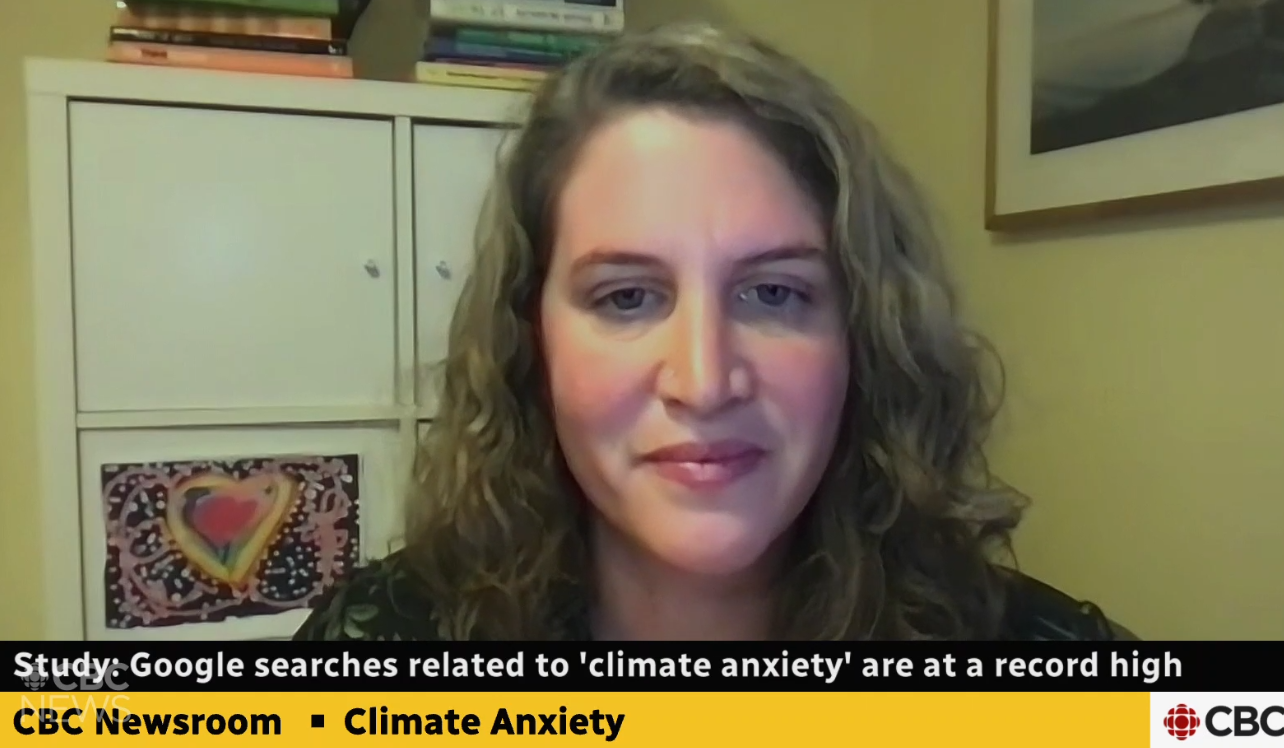Climate Change Education in the News
Dr. Ellen Field (Assistant Professor, Orillia) has recently participated in a number of interviews, panels, and roundtables, some in conjunction with the United Nations Climate Change conference held November 30-December 12, 2023.
In one interview with CBC News, Ellen spoke about climate anxiety as experienced by many youth—and what can be done to address it.
She explained that while there’s no singular definition of climate anxiety, “it can be understood as heightened distress, related to the climate crisis. This can be characterized as a constellation of strong interconnected emotions, like worry, fear, sadness, anger, and powerlessness. People may experience it in different ways, based on… whether they’ve experienced climate impacts previously... as well as their own sense of agency or ability to be resilient in the face of the crisis.”
Noting that strong emotional responses to climate change are understandable and appropriate, considering the scale and urgency of the crisis, as discussed in her paper with Dr. Lindsay Galway, she turned attention to how young people experiencing climate anxiety can feel empowered.
Talking about the crisis, and spending time in nature can help to offset feelings of powerlessness, she said. Equally important was getting involved in actions through their schools.
“Schools—where young people spend the majority of their time—have a significant role to play. Teaching students about the crisis and the solutions available to us is important, as well as getting them involved in actions that are going to reduce greenhouse gas emissions. This can help young people feel that they’re part of the solution and that their school, and larger community, is taking action.”
In another interview, Ellen discussed the “gaps of inconsistency” in climate change education across Canadian schools.
Emerging from her research on climate change curriculum and policies across Canada, she notes that across jurisdictions, there’s inconsistency where the topic shows up in the curriculum. Predominantly, climate change is covered in science units, but sometimes it’s in social studies. Further, it often turns up as a topic in elective senior high school level classes, which means students can opt out of them.
Citing another research study that analyzed climate policies at the school board level also released this year, Ellen explained that only four school boards of the nearly 400 across Canada currently have climate action plans.
“Improvements require action from the top, by policy-makers and school board decision-makers alike. If we’re in this moment that we need to halve our emissions by 2030, we need to make sure that every institution is doing what they can. School boards in particular have a role to play.”
An accompanying website has been built to support school boards engaged in creating climate action policies, which includes highlighting strengths of existing policies, resources for planning, recommendations for policy-makers, and a superintendent pledge.


